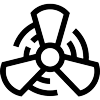WQA Certification Explained
Posted on January 25, 2023
The Water Quality Association (WQA) is an independent organization based in Illinois with a long-standing reputation for providing certifications in the water industry. The WQA provides two main types of certifications: professional and product certifications.
The first one is meant to distinguish industry experts and the second one is meant to ensure water treatment products perform as claimed.
The WQA saw a need to differentiate reputable professionals and products, and since 1977 they have been providing certification processes, similar to an NSF certification. Anyone carrying the WQA professional certification is immediately perceived as being a knowledgeable water quality professional.
Certification of Water Treatment Products
It can be difficult for consumers to verify the information provided on water products’ packaging, such as filters for contaminants. Similar to the familiar NSF certification for products, the WQA Product Certification is a way to check that your water products are up to par with either a Gold Seal or Sustainability Certification on the packaging. These ensure the product is built and tested to perform to rigorous industry standards, giving consumers the confidence that they are getting value for their money and water that is free of certain contaminants, such as lead.
Certification of Water Professionals
The same confidence that is found on the packaging of water treatment products certified by the Water Quality Association is also extended to the tested professionals that install them. There are five ways to be WQA-certified and display a confident level of training and expertise in the water treatment industry. Each requires completing the WQA e-learning product, the minimum experience requirements, and an exam.
Each e-learning product provided by the WQA guides water quality professionals before being tested. These e-learning products offer a more interactive experience that’s convenient to learn and meet their goals by breaking up the information into smaller sections.
Each e-learning product is coupled with WQA-instructor-led classes held over Zoom where they can ask water-related questions. Students can also get a consultation from a trusted professional about a product or the current industry standards. This allows you to catch problems before they become insurance claims or health issues. These are the five professional certification types:
Certified Installer
Focuses on the mechanics as well as code regulations for residential water applications. This is a 21-week course before being tested for certifications.
Certified Water Treatment Representative
An intensive course of two 15-week classes for professionals that are selling and configuring water treatment options for aesthetic contaminants.
Certified Water Specialist
For people dealing with health-related residential water applications, specifically selling and configuring a product and multistage treatment trains. This is an additional 14 weeks after being tested for the CWR courses.
Certified Service Technician
For troubleshooting the application of residential treatment systems. This course takes around ten months before being tested.
Certified Treatment Designer Certification
For business-to-business professionals selling products like filters and equipment and need exposure to industry standards to provide support for issues with a water product. This course takes around 6 months.
WQA Master Water Specialist
This is someone with a minimum of five years of field experience that has already earned the CWS certification. This takes around 30 hours of self-study before being tested for certifications.
Certification Based on Field Experience
An alternative path to WQA certification is to already have sufficient experience in the water treatment field. The Water Quality Association requires at least two years of experience for the Certified Water Specialist, and Designers need at least 5 years of claimed experience in the water industry. In these cases, you could skip the training and go directly to being tested for the certification.
Pricing and Return on Investment
The price for being certified varies based on the course you choose and whether or not you are a member of the WQA. This ranges from a $230 member price for the exam to $3,200 for non-members for the full CWS course and exam.
The return on investment for these certifications is the ability to perform to industry standards and cover any water-related mistakes that can be costly in callbacks. This keeps the reputation safe for both the company and the technician and avoids any insurance claims. You can also be confident you are getting the best certified products that will perform well.
Everyone who gets reviewed and certified is also listed on the WQA website, which filters any calls from consumers, regulators, and health departments searching for knowledgeable professionals. This can be an effective way to get referrals and ensure you meet the important safe work standards that can be the difference between getting new clients.
If you are interested in taking this important step to grow your water business, make sure to visit the WQA website. The Water Quality Association certification begins with a consultation to find out which type of certification is best and to learn the date of the next course to be tested and certified.
Note: The Water Quality Association also holds annual events - the WQA Convention & Exposition. These are the most comprehensive gathering of industrial water treatment industry professionals in North America and attending them represents a great opportunity to meet fellow professionals and grow your business.






